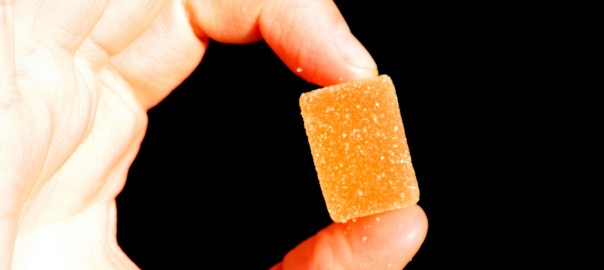
Parents of children with an autism spectrum disorder (ASD) are often at a loss when it comes to extreme behaviors and the social, emotional, and physical challenges they present. Aggression and self-injury are more often observed in children and youth than adults, which may offer hope that self-calming and self-regulating behaviors can be instilled to some degree. Short-term solutions are devastatingly limited; however, there are a few alterations to lifestyle that have been shown to inhibit extreme reactions and promote empathetic behavior.
Seratonin is produced naturally within the body, can be affected by environmental factors or stress, and have a direct impact on mood. Low seratonin can make an individual more agitated and “down,” while higher seratonin inspires feelings of happiness and positivity. To release more seratonin in your autistic child, make sure they are getting exercise and sunlight (even from indoors.) Serving foods high in tryptophan can also boost seratonin production: seafood, poultry, game, spinach, and egg whites, to name a few.
Most parents regularly control the sugar intake of their children as a means of controlling or preventing periods of hyperactivity, moodiness associated with declining blood sugar levels, anxiety, irritability, and aggression. However, parents of children with ASD should understand that artificial sweeteners aren’t a viable substitute sugar when it comes to violent reactions. A study from Ohio State University found that individuals prone to react violently will show increased aggression when given a sugar substitute as opposed to sugar.
“To be sure, consuming sugar should not be considered a panacea for curbing aggression,” says Brad Bushman, co-author of the study. “But the results do suggest that people who reportedly “snap” with aggression may need some way to boost their mental energy, so they can override their aggressive impulses.”
In the same study, low glucose levels (diabetes) were conclusively linked to aggression, violent behaviors, and an unwillingness to forgive people who don’t cooperate or antagonize them. The rate of diabetes is growing at an alarming rate and it’s projected that 79 million people currently have prediabetes. There are certain choices consumers can make to prevent diabetes, however. According to the Multi-Ethnic Study of Atherosclerosis, consumers have a 67% greater risk of developing Type-2 diabetes if they drink diet sodas regularly. Giving a child diet soda in order to avoid the behavioral problems associated with sugar might work wonders in the short-term, but may have profound long-term manifestations.
While addiction is nothing like repetitive behaviors seen on the autism scale, it’s worth noting that saccharin and sucrose (a natural sugar) have been shown to be preferable to cocaine in lab rats experiencing cocaine addiction. Even sucralose, commercially known as Splenda, may have negative effects on healthy individuals. A recent study at Washington University showed that sucralose increased insulin by as much as 20% and elevated the level at which blood sugar peaked.
In conclusion, sugar and sugar substitute consumption should be approached with diligence in order to find the best possible balance of Pros and Cons for both now and the big picture.
Sources:
Why is Autism Associated with Aggressive and Challenging Behaviors?
http://www.autismspeaks.org/sites/default/files/section_1.pdf
Researchers Find Link Between Sugar, Diabetes And Aggression
http://researchnews.osu.edu/archive/sweetagl.htm
Intense Sweetness Supasses Cocaine Reward
http://www.ncbi.nlm.nih.gov/pubmed/17668074
Multi-Ethnic Study of Atherosclerosis
http://www.mesa-nhlbi.org/
Sucralose Affects Glycemic and Hormonal Responses to an Oral Glucose Load
http://care.diabetesjournals.org/content/early/2013/04/30/dc12-2221.abstract
Diabetes Basics – Diabetes Statistics
http://www.diabetes.org/diabetes-basics/diabetes-statistics/